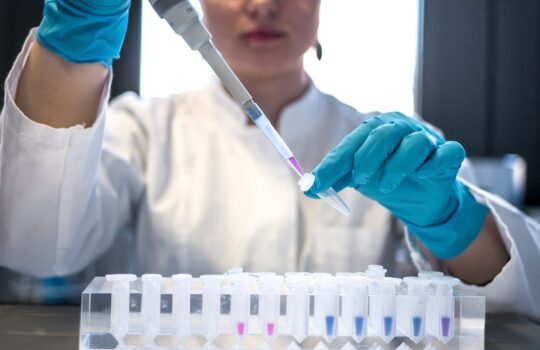Low Testosterone: Signs, Symptoms, and Treatment Considerations

Testosterone is an important hormone for men that influences muscle mass, bone density, mood, and sexual health. Low testosterone (hypogonadism) may occur at various ages and can cause symptoms that impact quality of life. Recognizing these signs early may be important for appropriate medical intervention.
This information is for educational purposes only and does not constitute medical advice. Consult your healthcare provider to determine if testosterone therapy is appropriate for your individual condition.
At TKO Vitality, licensed healthcare providers offer consultations regarding Testosterone Enhancement Therapy (TET) and comprehensive wellness strategies that may support natural hormone optimization. Our approach may serve as one option to consider alongside traditional Testosterone Replacement Therapy (TRT) for individuals with suboptimal testosterone levels.
To learn more about our services, visit TKOVitality.co/schedule for an informational discussion.
TKO Vitality providers are licensed in specific states. For emergency medical needs, contact your local emergency services or primary care physician.
Why Recognizing Low Testosterone Matters:
Low testosterone may contribute to fatigue, reduced libido, and physical changes, though individual experiences vary. Published studies suggest that testosterone therapy may improve energy, sexual function, and mood in some men diagnosed with hypogonadism, while investigational approaches like TET use oral medications or nutraceuticals that may influence natural testosterone production in individuals with levels in the 500700 ng/dL range (Bhasin et al., 2018; Snyder et al., 2017).
TET protocols are investigational and not FDA-approved for testosterone enhancement. Individual results may vary.
At TKO Vitality, our providers develop individualized plans that may address symptoms through comprehensive wellness approaches.
7 Potential Signs of Low Testosterone:
1. Fatigue and Low Energy Levels:
Persistent tiredness may be associated with low testosterone due to its role in metabolism and muscle function, though many factors can cause fatigue (Bhasin et al., 2018). A 2017 study in The Lancet found testosterone therapy significantly reduced fatigue in some men with diagnosed hypogonadism (Snyder et al., 2017).
TKO Vitality’s approach may support energy levels through comprehensive wellness strategies.
2. Decreased Libido:
Reduced sexual desire may be linked to low testosterone levels, potentially impacting relationships and well-being (Ramasamy et al., 2017). Some studies suggest testosterone restoration may improve libido in appropriate candidates (Cunningham et al., 2016). Our specialists discuss various approaches that may support sexual wellness.
3. Erectile Dysfunction (ED):
Low testosterone may contribute to erectile difficulties, particularly in men with other health conditions like diabetes (Cunningham et al., 2016). Comprehensive evaluation may help identify contributing factors for individualized treatment planning.
4. Mood Changes:
Low testosterone may contribute to mood changes, including irritability or low mood, though multiple factors influence mental health (Zarrouf et al., 2018). A 2018 meta-analysis suggested testosterone therapy may help some men with diagnosed hypogonadism and mood symptoms (Zarrouf et al., 2018).
Our comprehensive approach includes lifestyle factors that may support emotional well-being.
5. Changes in Muscle Mass:
Testosterone deficiency may affect muscle protein synthesis, potentially contributing to strength changes (Carson Manolagas, 2019).
Our fitness recommendations may complement medical treatment when appropriate.
6. Body Composition Changes:
Low testosterone may influence fat distribution, though diet and exercise remain primary factors in weight management (Traish, 2015). A 2015 study showed testosterone therapy may affect body composition in some men with diagnosed hypogonadism (Traish, 2015).
Our integrated nutrition plans may support healthy body composition goals.
7. Bone Health Considerations:
Low testosterone may affect bone density, potentially increasing fracture risk over time (Golds et al., 2017). A 2017 study suggested testosterone therapy may improve bone mineral density in some men with hypogonadism (Golds et al., 2017). Regular monitoring may help assess bone health during treatment.
Lifestyle Integration:
Optimal outcomes may be supported by combining medical treatment with lifestyle modifications including adequate protein intake, regular exercise (150 minutes weekly as recommended by health authorities), and stress management (Traish, 2015). Adequate sleep is important for hormonal balance. Regular laboratory monitoring is essential for safety and efficacy assessment.
Important Safety Information:
Investigational approaches like TET may cause side effects including gastrointestinal upset, which may be managed through dose adjustments (Bhasin et al., 2018). FDA-approved TRT, when medically indicated, requires monitoring for potential complications including blood count changes or prostate effects (Cunningham et al., 2016). Untreated hypogonadism may be associated with increased health risks (Golds et al., 2017).
Medical Supervision Requirements:
Comprehensive laboratory evaluation (hormone panels, lipid profiles, metabolic markers) is essential before and during any testosterone therapy. TKO Vitality’s program includes laboratory testing coordination and individualized protocols. All medications used are FDA-approved for their indicated uses.
How TKO Vitality Supports Your Health Journey
Our services may include:
- Laboratory testing coordination to assess hormone levels and overall health.
- Telehealth consultations with licensed providers to discuss individualized treatment options.
- Personalized wellness protocols incorporating nutrition, exercise, and lifestyle optimization.
- Ongoing support to help achieve sustainable wellness goals. Based on preliminary internal data, some patients report satisfaction with our comprehensive approach, though individual results vary significantly.
When to Consider Professional Consultation
You may benefit from professional evaluation if experiencing:
- Persistent fatigue, mood changes, or other symptoms affecting daily life.
- Physical changes impacting quality of life.
- Interest in evidence-based approaches to wellness optimization.
Consult your healthcare provider to determine if testosterone evaluation or therapy is appropriate for your individual health needs.
To schedule an informational discussion about our services, visit TKOVitality.co/schedule. Our evidence-based approach emphasizes safety and individualized care.
Next Steps in Your Wellness Journey
Achieving optimal health requires professional guidance and individualized approaches.
Consider professional evaluation if you are:
- Experiencing persistent symptoms that may warrant medical assessment.
- Seeking evidence-based approaches to wellness optimization.
- Ready to explore comprehensive health strategies with licensed providers.
Schedule an informational consultation at TKOVitality.co/schedule to learn how our comprehensive approach may support your individual health goals.
This information has not been evaluated by the FDA and is not intended to diagnose, treat, cure, or prevent any disease. Individual results may vary. Consult your healthcare provider before beginning any treatment program.

Don’t wait—low testosterone affects millions, and time’s running out to take control. Join thousands transforming their lives with TKO Vitality.
References:
- Bhasin, S., et al. (2018). Testosterone therapy in men with hypogonadism: An Endocrine Society clinical practice guideline. The Journal of Clinical Endocrinology & Metabolism, 103(5), 1715–1744.
- Carson, J. A., & Manolagas, S. C. (2019). Effects of testosterone on muscle and bone in men. Nature Reviews Endocrinology, 15(7), 420–431.
- Cunningham, G. R., et al. (2016). Testosterone treatment and sexual function in older men with low testosterone levels. The New England Journal of Medicine, 374(7), 611–624.
- Golds, G., et al. (2017). Bone health in men with hypogonadism: A systematic review. The Lancet Diabetes & Endocrinology, 5(9), 717–728.
- Ramasamy, R., et al. (2017). Testosterone deficiency and sexual dysfunction: A review. Urology, 104, 1–7.
- Snyder, P. J., et al. (2017). Effects of testosterone treatment in older men. The Lancet, 389(10069), 1639–1648.
- Traish, A. M. (2015). Testosterone and obesity: A bidirectional relationship. Obesity Reviews, 16(8), 681–695.
- Zarrouf, F. A., et al. (2018). Testosterone and depression: Systematic review and meta-analysis. Psychoneuroendocrinology, 87, 114–121.
Additional Resources:
FDA.gov: Information on approved testosterone therapies
Endocrine Society: Clinical practice guidelines for testosterone therapy
Your healthcare provider: For personalized medical advice






